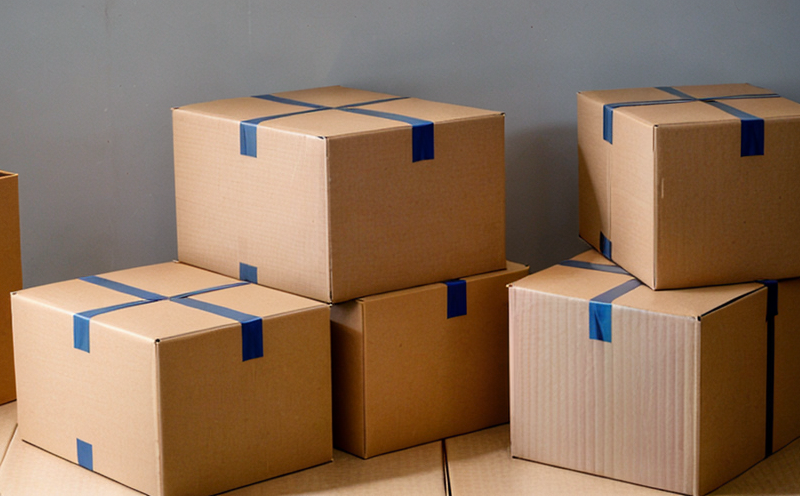ISO 73382 Overall Migration Testing in Recycled PET Bottles
The ISO 73382 standard specifically addresses overall migration testing of recycled polyethylene terephthalate (PET) bottles, a critical aspect for ensuring food and beverage safety. This service is essential for manufacturers who use recycled materials to produce packaging that comes into direct contact with consumables.
Recycled PET has gained significant popularity due to its sustainability benefits; however, it also poses unique challenges in terms of chemical migration from the packaging material into the product. The ISO 73382 standard provides a comprehensive framework for evaluating these risks by simulating real-world conditions and assessing potential harmful substances that may leach into food or beverages.
The testing process involves several key steps: preparation of the sample, immersion in simulated beverage, extraction, analysis of extracted compounds, and finally interpretation of results against predefined safety thresholds. Compliance with this standard ensures that recycled PET bottles meet stringent regulatory requirements set forth by international bodies like the European Union (EU) and United States Food and Drug Administration (FDA).
Our laboratory adheres strictly to ISO 73382 guidelines throughout every stage of testing, ensuring accurate identification and quantification of migrated compounds. By leveraging advanced analytical techniques such as gas chromatography-mass spectrometry (GC-MS), we can detect even trace amounts of contaminants, providing clients with reliable data they need for informed decision-making.
One major challenge in conducting overall migration tests on recycled PET is managing variability introduced by different sources of recovered plastic waste. This variability necessitates thorough quality control measures during specimen preparation to maintain consistency across multiple batches. Additionally, it requires precise calibration of extraction solutions and rigorous adherence to temperature and time parameters prescribed by the standard.
Another important consideration is ensuring that the test conditions accurately mimic actual usage scenarios. For instance, if a particular type of recycled PET bottle will be used for carbonated beverages at room temperature or in refrigeration units, those environmental factors must be accounted for during testing to ensure relevant and actionable results.
The importance of ISO 73382 cannot be overstated given its role in safeguarding public health while promoting sustainable practices within the packaging industry. It helps identify potential risks early on so that necessary corrective actions can be taken before products reach consumers. Properly executed overall migration testing not only protects end users but also enhances brand reputation by demonstrating commitment to safety and environmental responsibility.
By partnering with Eurolab for ISO 73382 compliance, food & feed producers gain access to expert knowledge and state-of-the-art facilities dedicated solely to ensuring the highest standards of quality assurance. Our team of experienced professionals will guide you through each step of the process, offering customized support tailored specifically to your business needs.
Benefits
- Ensures compliance with international standards such as ISO 73382
- Detects potentially harmful substances in recycled PET bottles early
- Provides reliable data for informed decision-making regarding product safety and quality assurance
- Safeguards public health by identifying risks before they become issues
- Enhances brand reputation through demonstrated commitment to food safety and environmental responsibility
- Supports sustainable practices within the packaging industry while protecting consumer interests
- Maintains continuous compliance with relevant regulations and guidelines
Eurolab Advantages
With Eurolab, you benefit from a team of highly qualified professionals who specialize in food & feed testing. Our expertise encompasses all aspects of packaging migration analysis, allowing us to provide comprehensive solutions that meet your specific requirements.
We have state-of-the-art facilities equipped with cutting-edge technology tailored specifically for this type of testing. This ensures accurate results and consistent quality throughout the entire process. Moreover, our experienced staff stay updated on the latest developments in both analytical techniques and regulatory changes, ensuring you always receive up-to-date insights and recommendations.
Choosing Eurolab means working with a partner dedicated to excellence in every aspect of food & feed testing. We offer personalized service designed to support your unique needs, whether you're seeking assistance with compliance issues or looking for opportunities to enhance product safety and quality.
International Acceptance and Recognition
The ISO 73382 standard enjoys broad international acceptance due to its rigorous approach to ensuring food safety. Regulatory authorities around the world recognize this standard as a benchmark for evaluating migration from recycled PET into contact materials like bottles used in food packaging.
In Europe, compliance with ISO 73382 is often required by law when dealing with recycled plastics intended for direct contact with edible items. Similarly, in North America and other regions, adherence to these standards helps manufacturers avoid costly recalls and maintain consumer trust.
Recognition extends beyond national boundaries; international organizations such as the World Health Organization (WHO) recommend following similar protocols outlined in ISO 73382 to protect global public health interests effectively. By embracing this standard, businesses contribute positively towards achieving shared goals of safety, reliability, and sustainability across borders.





